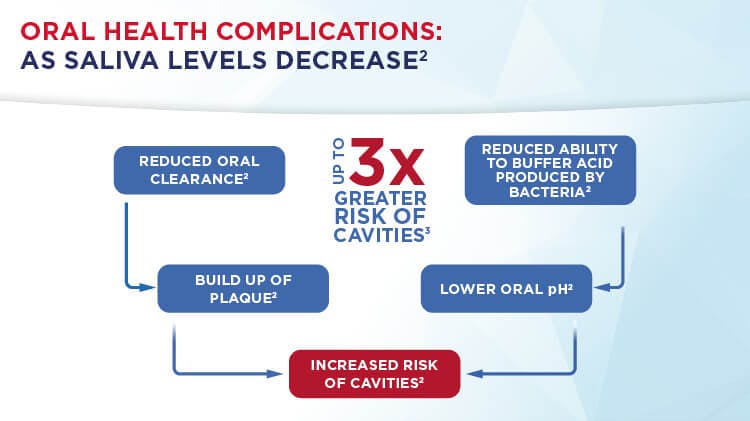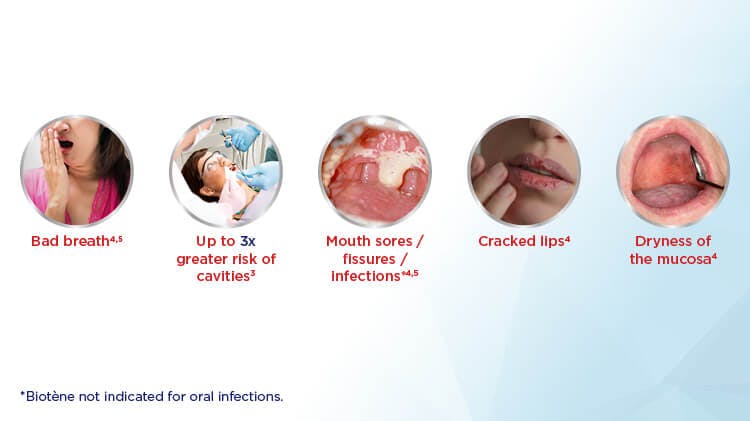Dry Mouth: Management

Managing Dry Mouth
A multidisciplinary approach is recommended for the management of Dry Mouth.1 Effective treatment is tailored to individual patients needs.1
The Role of the Dental Professional in Dry Mouth1
Management of Dry Mouth should both relieve symptoms and prevent its associated oral health implications.
The dental professional is key in proactively identifying patients at risk before more serious and irreversible oral consequences occur.
The symptoms of Dry Mouth can have a profound effect on patients. Advice should include how to manage and relieve symptoms, thereby helping to improve patients' quality of life.

Oral Health Complications: Proactive and Early Intervention Can Help Manage Oral Health Problems.4,5

Oral Health Complications as a result of Dry Mouth.3-5
Dry Mouth Management: Multidisciplinary Care
A multidisciplinary approach is recommended by guidelines for reducing the symptoms associated with Dry Mouth.6
| Education | Systemic disease management | Oral health maintenance | Improving saliva flow | Palliative measures |
| Raising patient awareness of the causes of Dry Mouth and the preventive measures they can take |
Consultation with the patient’s healthcare providers around the management of systemic conditions and medications
|
Frequent professional assessment of oral health and preventive measures as needed | Pharmacological treatment with salivary stimulants | Non-pharmacological measures for improving symptoms, such as over-the-counter rinses, toothpastes or gels |
Offer Your Dry Mouth Patients a Solution That Suits Their Different Needs, Around the Clock*
*after 28 days of use
